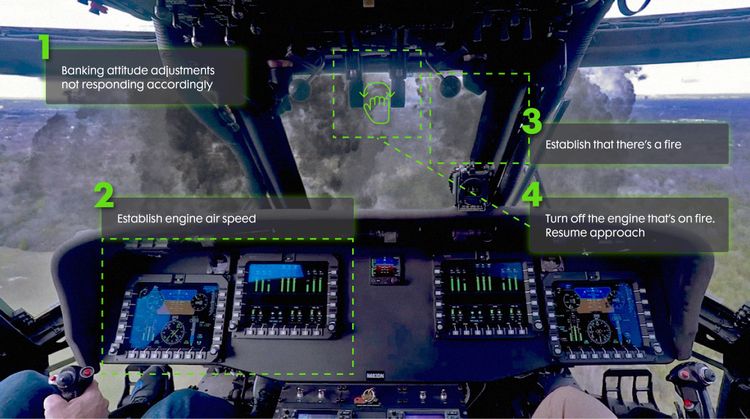
DARPA recently awarded Northrop Grumman and the University of Central Florida (UCF) a contract to develop a prototype of an artificial intelligence (AI) assistant. The Perceptually-enabled Task Guidance (PTG) program will create the prototype that will be embedded in an augmented reality (AR) headset to help rotary pilots perform expected and unexpected tasks.
PTG will develop the Operator and Context Adaptive Reasoning Intuitive Assistant (OCARINA) that will support UH-60 Blackhawk pilots, who are required to fly with both visual and instrumented flight in varied conditions. The pilots are often faced with the challenges of flying in close proximity to buildings, terrain, people, and from the threat of adversary RADAR systems. They currently rely on simple warning systems, such as auditory alerts.
“The goal of this prototype is to broaden a pilot’s skill set,” said Erin Cherry, senior autonomy program manager, Northrop Grumman. “It will help teach new tasks, aid in the recognition and reduction of errors, improve task completion time, and most importantly, help to prevent catastrophic events.”
The AI technologies developed by the PTG program are expected to help users perform complex mental and physical tasks by providing them with wearable sensors that allow the assistant to observe what the user perceives and know what the user knows. The AI system will use advanced information processing and an augmented reality interface in the headset to provide feedback and guidance through speech and aligned graphics at the right place and time to augment the aircrew.
